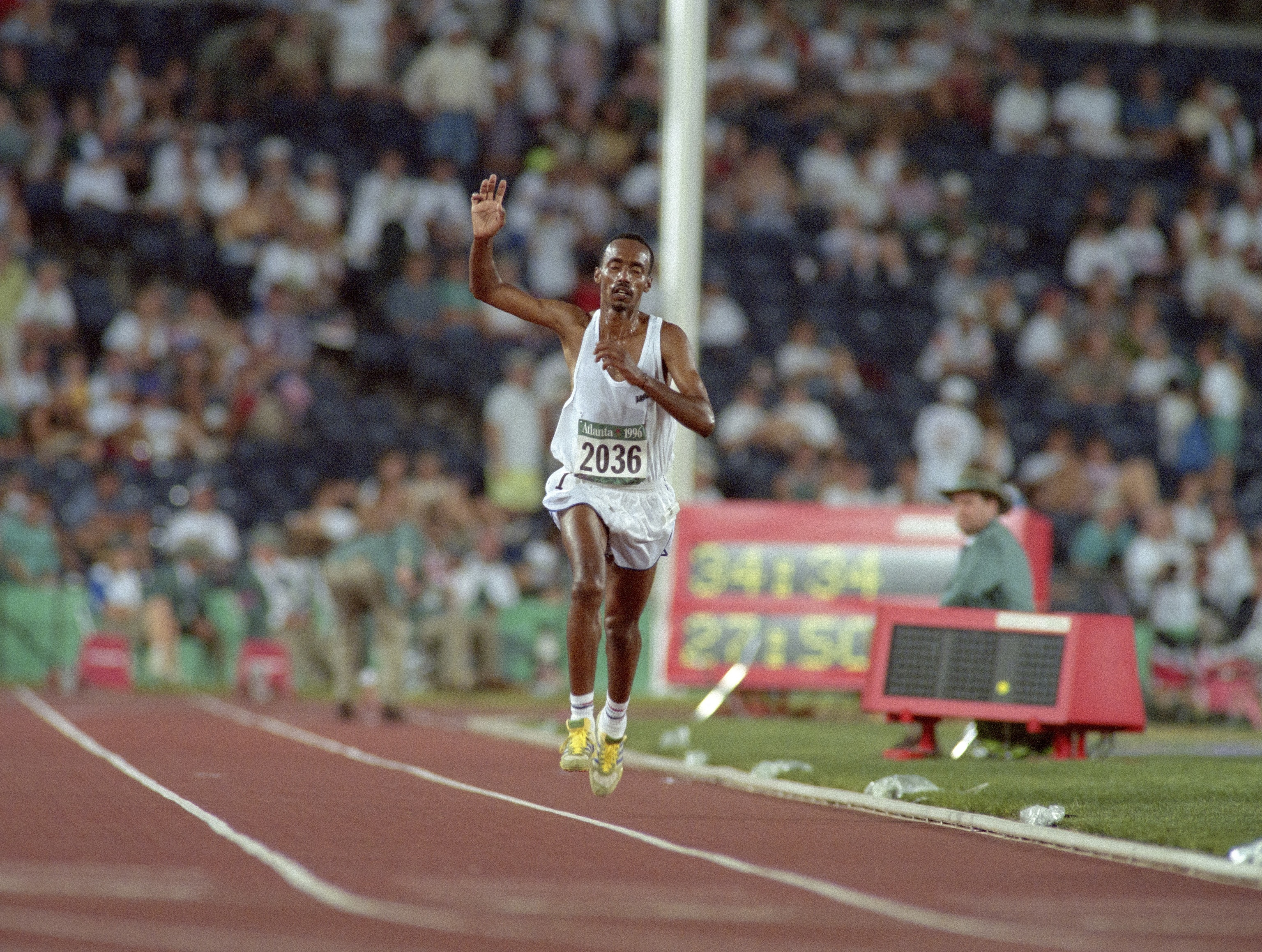Missiles heading towards children playing soccer were printed on the shirt worn by boxer Wassem Abu Sal during the opening ceremony. A Palestinian flag tattooed on the chest was visible on Yazan Al-Bawwab during the 100 backstroke heats. The swimmer raised his hand in a victory sign while the La Defénse Arena crowd supported his cause. None progressed, eliminated, but they conveyed their message, just as the first Palestinian Olympian, Majed Abu Maraheel, did at the 1996 Atlanta Games.
The time was different, a time of hope three years after the Oslo Accords that established the Palestinian Authority. Abu Maraheel then offered a message of peace, far from the current heated demands under Israeli bombings. He could not have imagined the tragic fate awaiting him, passing away in Gaza weeks before the Paris Games due to lack of medical assistance for his renal treatments. Speaking on his behalf and on behalf of over 36,000 deceased in Gaza, including around 340 professional athletes, are his successors. Peace is their medal, the medal of utopia.
"France does not recognize Palestine as a country [unlike Spain], so I am in Paris to display this flag," Al-Bawwab pointed to his chest, having no issue answering all questions in the mixed zone of La Defénse Arena. It was his small victory. Israeli Adam Maraana, who also participated in the 100 backstroke heats on Sunday, had a different stance: "Do not let them deceive you with misinformation."
"We are not treated as human beings, so being here serves to show that we are equal to everyone else, deserving of different treatment," insisted the Palestinian swimmer. "I want to show the world the dignity of all Palestine," stated the boxer who carried the flag on the most applauded boat on the Seine, alongside the French flag.
These messages differ from those left by Abu Maraheel in 1996: "With my presence, we have already won the gold medal. This will help heal wounds and erase some bitter images of the past." Unfortunately, in the Middle East, the past always resurfaces, from the Six-Day War, the Yom Kippur War, and the massacres of Sabra and Shatila to the Hamas massacre and the bombings in Gaza. In 1996, the International Olympic Committee (IOC) admitted Palestine, despite not being recognized by the international community, based on its legal independence, allowing Abu Maraheel to compete in Atlanta, where he was eliminated in the first round of the 10,000 meters, finishing eleventh.
But the Games did not end there for the first Palestinian athlete and flagbearer. Abu Maraheel shared his message with as many international journalists as possible. "I run for peace and nothing but peace," he declared in the Atlanta Journal. He also met with members of the city's Jewish community and relatives of the Munich'72 attack victims, where 11 members of the Israeli delegation and several terrorists from the Palestinian group Black September, who had been invited by the organizing committee, lost their lives.
Born in a refugee camp
He was an ideal figure to explain the Palestinian reality, as his life was the story of his people in flesh and bone. Born in 1963 in the Nuseirat refugee camp in Gaza Strip, where his parents settled after fleeing Beersheba. He started working as a construction worker in Erez, running the daily twenty-kilometer route, only stopping at the checkpoints, which eventually became his best training.
He began playing for Al Zaytoon, a local football club, but soon shifted to athletics. After winning a race where Yasir Arafat presented the awards, the Palestinian leader asked him if he would be interested in joining his security entourage when he visited Gaza. This led to a relationship that made him sympathize with Fatah, always staying away from the most radical positions. Even after his son was injured in an Israeli incursion in Gaza, his message remained unchanged.
He never abandoned sports, determined to train Palestinian athletes who could follow his example, but based on their own merits, not diplomatic reasons, through the IOC's wild card entries. Out of the eight Palestinian athletes in Paris, seven entered through this method.
Israeli bombings forced Abu Maraheel and his family to move to a refugee camp. His health had deteriorated due to renal failure, for which he was receiving treatment until it became impossible due to the deterioration of healthcare in the Strip. Family and friends tried to take him to Egypt but failed, and Abu Maraheel passed away on June 11, a month before the Games, in the Nuiserat camp, the same place where he was born after his parents' escape, as if nothing had changed after a life dedicated to sports and peace.
